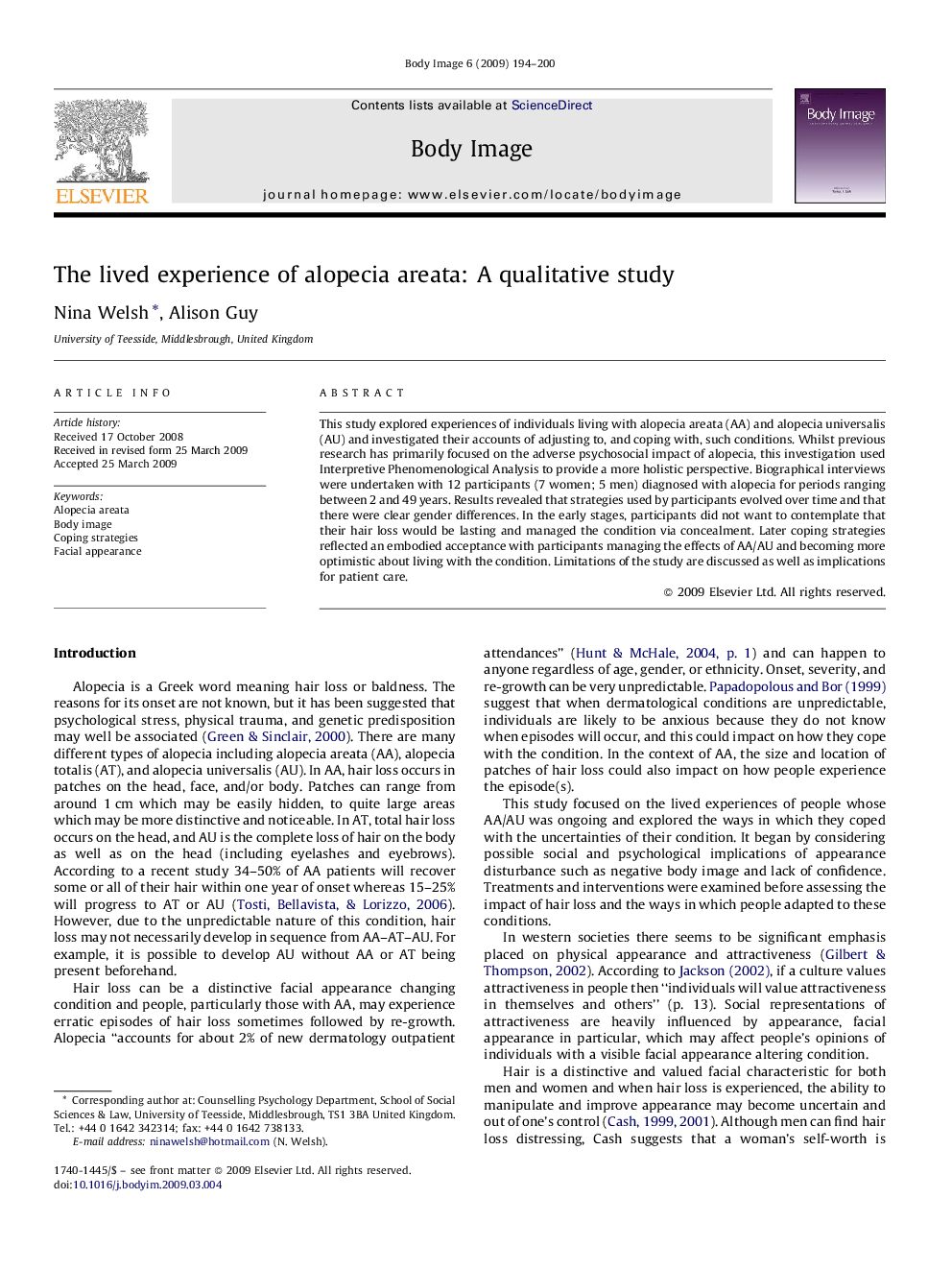| Article ID | Journal | Published Year | Pages | File Type |
|---|---|---|---|---|
| 903260 | Body Image | 2009 | 7 Pages |
This study explored experiences of individuals living with alopecia areata (AA) and alopecia universalis (AU) and investigated their accounts of adjusting to, and coping with, such conditions. Whilst previous research has primarily focused on the adverse psychosocial impact of alopecia, this investigation used Interpretive Phenomenological Analysis to provide a more holistic perspective. Biographical interviews were undertaken with 12 participants (7 women; 5 men) diagnosed with alopecia for periods ranging between 2 and 49 years. Results revealed that strategies used by participants evolved over time and that there were clear gender differences. In the early stages, participants did not want to contemplate that their hair loss would be lasting and managed the condition via concealment. Later coping strategies reflected an embodied acceptance with participants managing the effects of AA/AU and becoming more optimistic about living with the condition. Limitations of the study are discussed as well as implications for patient care.
